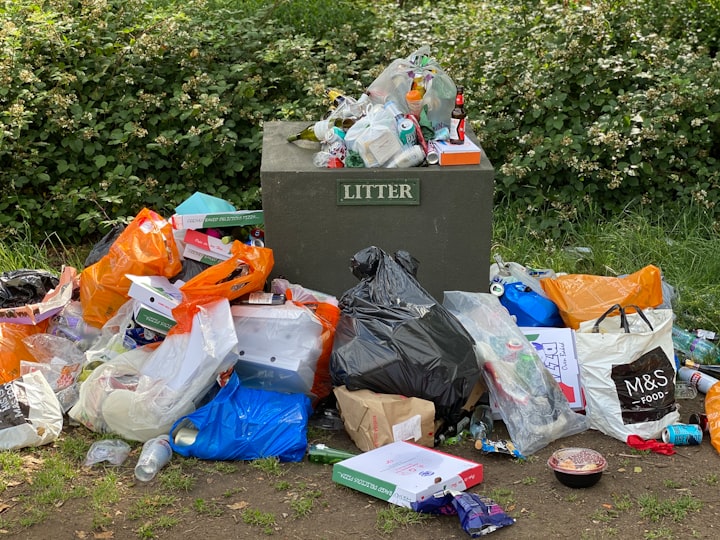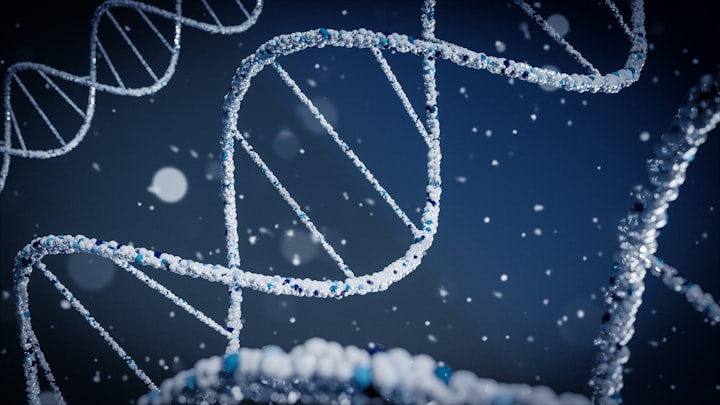
Jon Huang @ UHM
Epidemiology and Biostatistics
@ University of Hawaiʻi at Mānoa
Family, Child, and Adolescent Health
Child Environmental Health
Longitudinal Casual Inference & Biomarkers
Prediction and Statistical Learning
About the Group
Under Revision!
As of Fall 2023, Jon will join the University of Hawaiʻi at Mānoa, Thompson School of Social Work and Public Health, Office of Public Health Studies. With this change, the group will have a broader focus on Hawai'i, Pacific Island, and Asian regional health, however the overarching research goals, methods, and attention to family and child health will remain!
While the website is updated, we will keep the existing information up as most of it is still relevant.
Stay tuned for updates!
(Previous version below)
--
We are part of the Singapore Institute for Clinical Sciences (SICS), within the Agency for Science, Technology and Research (A*STAR). We are based in the Brenner Centre for Molecular Medicine on the campuses of the National University of Singapore (NUS) and National University Hospital (NUH).
Our primary aim is to adapt and apply cutting-edge methods to complex data (longitudinal, -omics, sociobehavioral, etc.) to study maternal, child, and adolescent health, including:
- Longitudinal causal inference approaches to investigate developmental mechanisms and estimate potential benefits of early life interventions and
- Principled consideration of machine learning algorithms for developing and testing prediction models for maternal and child outcomes
Additionally, we provide consultation, mentorship, and supervision on epidemiologic and biostatistical methods for several clinical and population health projects, primarily within two Singaporean population-based, prospective birth cohorts, but also with numerous local and international researchers.
We are a growing group with no shortage of interesting data and potential projects!
If you are interested in working with us, head down to the "Jobs" section and/or send us an email!
Past hosted workshops and seminars can be found in the "Resources" section!
Projects
Work we are leading:
Paternal contributions to child health and human potential
The DADSCAN (Dads Advancing Data for the development of Singaporean Children and Adolescents Now) project seeks to fill an important gap in understanding the multi-faceted ways in which dads and partners support child health and development throughout the early life course -- from preconception through adolescence. These range from biological and epigenetic contributions through social support of the mother to interactions and behavioral modelling in the child.
Multimodal data across three Singaporean cohorts, focus group and key informant interviewing, and social media data mining will be combined with cutting edge quantitative and qualitative methods focused on understanding and developing relevant interventions for the Singaporean context.
Funded by the A*STAR Biomedical Research Council (Health and Human Potential)
Environmental exposures in reproductive and child health
GUSTO study team; UC San Diego; U Mass Amherst; Icahn School of Medicine at Mt Sinai; University of Washington; Singapore Institute of Food and Beverage Innovation (A*STAR), Yale School of Public Health
Exposures to harmful chemicals through air, food, water, and the womb (from the mother) are a disproportionate threat to developing babies and children due to their immature physiology and behavioral patterns. In collaborations with several institutions, we are investigating the contribution of PM2.5, PFAS, pesticides, phthalates, and other chemicals on pregnancy and child outcomes.
Data collections involve geospatial methods, remote sensing data, and individual-level aerosol monitoring through wearable wristband collectors.
Projects include methodological innovations including heterogeneous effects of chemical mixtures and physiologically-based toxicokinetic modelling of maternal, placental, and fetal exposures.
Multi-omic mechanisms for ART and infertility on child health
GUSTO study team; MD Anderson; Various contributing birth cohorts
Associations between assisted reproductive technology (ART) usage and long term offspring stature and cardiovascular health are inconsistently reported and putative mechanisms are unknown. We use multiple epigenomes and transcriptomes from maternal, placental, and fetal tissues to disentangle comorbidity- and triangulate ART- related causal effects on child development and cardiometabolic health.
We are developing a large resource of placental transcriptomics including first-of-its-kind long-read (Nanopore) sequencing.
Funded by Singapore National Medical Research Council (YIRG)
Simulating effects of early life interventions on child adiposity
GUSTO study team (SICS, NUS, KK Women's and Children's Hospital, University of Southampton)
We use cross-fit efficient estimators such as targeted maximum likelihood estimation (TMLE) with cross-validated, stacked generalization (SuperLearner) to estimate potential effects of interventions on perinatal and infant factors on child cardiometabolic outcomes (BMI, qMRI body composition, glucose tolerance, lipids, blood pressure, etc). Early work demonstrates the importance of target trial approaches over conventional observational methods to reproduce RCT findings and inform future trials and interventions.

Other on-going projects
Contributions of built and natural environment to population susceptibility and disparities in resilience to health and wellness shocks
Microsimulation modelling effects of wealth transfer interventions on racial-ethnic pregnancy and birth outcome disparities (funded by BU / Harvard FXB Center for Health and Human Rights)
Manual and automated ensemble learning for clinical prediction models of child cardiometabolic risk from traditional risk factors and longitudinal -omics
Real world performance of double-cross fit, doubly-robust efficient effect estimators in high-dimensional molecular epidemiologic cohorts: simulation studies
Negative control approaches (control outcome calibration; proximal inference) to leverage multi-omic data for unmeasured confounding control: simulation studies
Parent and child-reported life experiences and behavior change during the COVID-19 circuit breaker in pre-school and school-aged Singaporean children
Local and International Collaborations
A sample of projects we contribute to:

Prediction of maternal depression and anxiety scores
PI: Michael Meaney (SICS / McGill)
We use cross-validated, stacked generalization to predict maternal mental health scores utilizing readily collected demographic and questionnaire data and evaluate model improvement when adding more complex measures (SNPs / polygenic risk scores). Models will be validated in several independent cohorts.

GDM, breastmilk composition, and infant growth
PI: Mary Wlodek (University of Melbourne)
We are consulting on statistical modelling of relationships between maternal gylcemia, breastmilk composition, and infant phenotypes; including prediction models for poor breastmilk production.

Child oral microbiome and cardiovascular health
PI: Stephen Hsu (NUS Dentistry)
We are consulting on statistical modelling of longitudinal oral microbiome measures and child cardiovascular phenotype.

Inter-pregnancy weight gain and mother and child outcomes
PI: Nisreen Alwan (University of Southampton)
We are consulting on statistical modelling of the effects of weight change on outcomes among mothers, children, and the subsequent pregnancy.

RCT of a periconception nutritional supplement (NiPPeR Study)
PIs from University of Southampton; University of Auckland; National University of Singapore
We will be providing the primary biostatistical leadership for the Singapore arm of an industry-sponsored, multi-site clinical trial.

Mobile App to Improve Maternal & Infant Outcomes
A*STAR, NUS, National University Hospital
RCT of a holistic, multi-domain intervention to deliver adaptive parenting advice to improve maternal & infant physical and mental health outcomes
Team

Jonathan Huang
PI
The principal investigator is Jon Huang, whose expertise is in reproductive, perinatal, and pediatric epidemiology; formal causal inference; and the integration of molecular biomarkers in causal mediation analyses. His broader interests are in the role of these methods in the production of scientific knowledge and, in turn, informing clinical and public health policy (personal website).
He trained in epidemiology, biostatistics, and public health genetics at the University of Washington (Seattle, USA) and completed a postdoc at McGill University (Montreal, Canada). He has published in leading journal including JAMA Pedatrics and Nature Communications and has been recognized by leading bodies including an American Journal of Epidemiology Papers of the Year (2016). He has given invited lectures widely including in the U.S., E.U., and Singapore and hosted several data science-related workshops. His research is funded by competitive grants from the Singapore NMRC and BMRC.
Jon is an Assitant Professor of Epidemiology and Data Science in the Office of Public Health Studies at the University of Hawaiʻi at Mānoa. He also hold an Adjunct Assistant Professor position with the Centre for Quantitative Medicine, Duke-NUS and is an Associate Editor and Education team member at the International Journal of Epidemiology, Methodological Editor at Fertility & Sterility, and Associate Editor at PLOS Global Public Health. (Full CV here)
Catch up with me on Mastodon!

Sum Ka Kei
Research Officer - Epidemiology
Ka Kei recently completed her MSc in Epidemiology at the London School of Hygiene and Tropical Medicine (LSHTM). Prior to completing her Master’s, she was engaged in various research capacities in the US involving clinical trials, basic science, and public health policy at the state and global level. Her interest in scientific research, health policy, and public health led her to pursue Epidemiology in her graduate studies; a means she believes can transform health policy and address critical health challenges through producing quality, actionable epidemiological evidence.

Jian Huang
Research Fellow - Molecular Epidemiology
Jian is a research fellow in molecular epidemiology. He completed his PhD in epidemiology at the University of Hong Kong in 2018. As part of his PhD, he worked on epigenetic projects using a population cohort at Columbia University between 2017-2018. After obtaining his PhD, Jian joined the UK Dementia Research Institute at Imperial College London as postdoctoral research associate to investigate the causal relationship of lifestyle factors and molecular biomarkers with risk of Alzheimer's disease. He has extensive experience in multi-omics data analysis and causal analysis using Mendelian randomisation approach. Jian joined Singapore Institute for Clinical Sciences (SICS) in late 2020. Here, he is investigating the causal relationship of maternal and early-life exposure with neurodevelopment in children, and its underlying mechanisms.
His research portfolio can be found here.

Juang Yah Ru
Intern - BSc Life Sciences, Incoming MPH Student
Yah Ru is currently an NUS undergraduate majoring in Biomedical Sciences and minoring in Public Health and Business Management. Through this internship, she hopes to gain valuable insights regarding the current state of public health sectors and learn scientific research literature and techniques to improve the decision-making process of the current health policies in Singapore.

Gerard Chung
Research Fellow - DADSCAN, Social Sciences, Social Work
Gerard completed his Ph.D. in social work at the University of North Carolina at Chapel Hill School of Social Work. He currently holds an adjunct research fellow position with the Social Service Research Centre, NUS working on two longitudinal studies with youth offenders and in-work poverty among young persons. Prior to research, he practiced as a social worker in Singapore working with families and children experiencing family violence, child maltreatment, and parenting. As a social work researcher, he is interested in researching on parenting, fathers, family-centered services in the community, and social service agencies (personal website). He is also interested in intervention research and development.
Former

Cao Pengcheng
Intern - MSc Data Science & Machine Learning Student
Currently: SeaMoney, Risk Modelling
Pengcheng hold a Bachelor's in Statistics and is presently a Masters in Data Science student at the National University of Singapore. He wants to put into practice what he has learned and gain experience related to applied biostatistics. In his internship he will work on developing and critically evaluating a clinical prediction model for adolescent metabolic risk. In the future, he plans to pursue a Ph.D. in Biostatistics.

Jacqueline Siow
SGUnited Intern
Currently: Singapore Institute of Technology, Health and Social Science Research Assistant
Jacqueline is a public health practitioner and holds an MPH in Public Health Nutrition from the University of Queensland with emphasis on non-communicable disease prevention and raising awareness of healthy diets and behaviours. She is passionate about methods for finding and evaluating evidence in community-based public health interventions and health policy that can prevent disease / improve health of children and adolescents. Jacqueline is also keen to synthesize important evidence from scientific literature that can drive health policy as well as contribute to better informed decisions for healthcare practitioners.

Mrunalini Jagtap
Data Management Lead
Mrunalini is an accomplished professional with over 12 years of experience in diverse roles across CRO, IT, pharmaceutical & research organizations where she has exhibited expertise in steering global CDM projects conducted across US, EU & APAC to successful completion. Mrunalini is passionate about keeping abreast on the latest trends and technologies which can be seen in her articles and presentations delivered at various international conferences in Singapore, India, and Germany. Mrunalini is keen to drive digital transformation that will enable organizations to draw valuable insights from the data and make better informed decisions.

Ray Wong
Trial Statistician
With comprehensive working experience in academic, medical center, and global research organization settings, Ray gained extensive exposure to epidemiological, biomedical and observational studies across countries and multiple therapeutic areas. His previous research work included environmental and familial causes of birth defects, target population segmentation, randomized studies, late phase clinical trials and drug post-authorization studies.

Izzah Mustafa
Intern
Izzah is currently a Biomedical Sciences student from the University of Manchester. She intends to pursue her MSci, where she is interested in research in clinical sciences. She hopes to gain more insight into scientific research on the public health sector, and improve on current health policies.
Murshad Ahmed
Research Fellow
Work With Us!
We're always on the look-out for new team members, interns, and students!
Click on any active links below for the job description and way to apply.
We will updating frequently with new opportunities at the undergraduate, post-graduate, and PhD level.
Nonetheless, if you don't see something below that fits your specific interests but you are passionate about a career in child and adolescent health research in Singapore, contact us anyway using the form below!

PhD - Research Fellow; Epigenetics/Biostatistics (Click Here)
PhD - Quantitative Social Scientist (Click Here)
MS/PhD Student - Summer Internships
Undergraduate Internships
Resources
Find materials from the PI and research group here, including our HDSI and other workshops and hosted seminars.
HDSI: 3-day "Health Data Science for Impact" virtual workshop held from 16-18 March 2021 on methods and theory for intervention- and policy- relevant health research (Contact us for any video passwords)
Contact
Let us know how we can work together!
Jonathan Y Huang © 2023, 2022, 2021, 2020, 2019
















